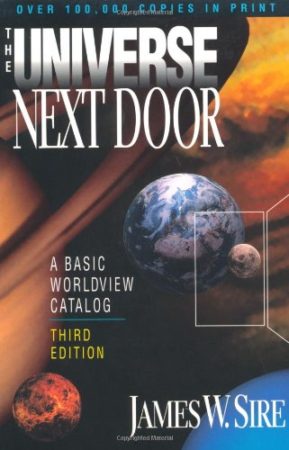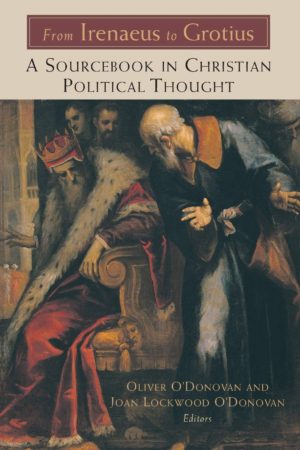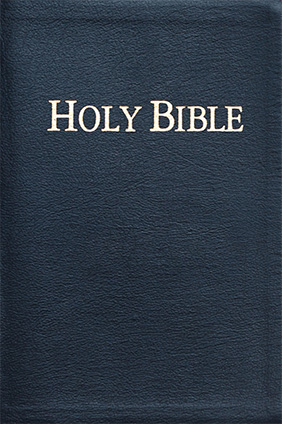Russell E. Kuykendall
World View Primer
A generation or two ago, a broadly shared faith or at least a generally held perspective on how we should then live could be assumed, answering the ancient Greeks’ three ultimate questions, plus one more: Who am I? Where did I come from? Why am I here? And, a fourth: Who loves me?
Today, answers to the questions differ. Consensus does not hold. To engage publicly, one must understand one’s own world view, and be aware of and understand divergent world views.
 First published in 1977, James W. Sire’s The Universe Next Door: A Basic World View Catalog is now in its sixth revised edition (2020). Sire takes a page from James Orr’s The Christian View of God and the World, based on Orr’s 1891 Kerr Lecture in which he appropriated and translated the German term, weltanschauung, as “world view.” Orr responded to what his contemporaries called “the un-Christening of Europe,” which continues in North America. Sire’s The Universe Next Door grapples with how “un-Christening” has radically secularized public institutions and brought a generation of modernist liberalism hostile to a Christian world view. Alasdair MacIntyre’s 1987 Gifford Lectures, Three Rival Versions, defines a successful world view as one which understands it is not universally held, is capable of understanding competing world views “from the inside” charitably, and is prepared to offer critique of other world views (and itself) based on each world view’s claims. A failing world view is incapable of this. MacIntyre argues that modernist liberalism assumes its world view is universally true and held, though 9-11 fundamentally challenged that assumption.
First published in 1977, James W. Sire’s The Universe Next Door: A Basic World View Catalog is now in its sixth revised edition (2020). Sire takes a page from James Orr’s The Christian View of God and the World, based on Orr’s 1891 Kerr Lecture in which he appropriated and translated the German term, weltanschauung, as “world view.” Orr responded to what his contemporaries called “the un-Christening of Europe,” which continues in North America. Sire’s The Universe Next Door grapples with how “un-Christening” has radically secularized public institutions and brought a generation of modernist liberalism hostile to a Christian world view. Alasdair MacIntyre’s 1987 Gifford Lectures, Three Rival Versions, defines a successful world view as one which understands it is not universally held, is capable of understanding competing world views “from the inside” charitably, and is prepared to offer critique of other world views (and itself) based on each world view’s claims. A failing world view is incapable of this. MacIntyre argues that modernist liberalism assumes its world view is universally true and held, though 9-11 fundamentally challenged that assumption.
Sire’s The Universe Next Door seeks awareness, and to encourage charitable understanding and critique of competing world views. Designed for undergraduate young adults, The Universe Next Door might well suit many high schoolers. (For pre-teens, I suggest Susan Schaeffer Macaulay’s How To Be Your Own Selfish Pig.)
“A Christian Sourcebook”
In the preface to their From Irenaeus to Grotius: A Sourcebook in Christian Political Thought the husband and wife editorial team of Oliver O’Donovan and Joan Lockwood O’Donovan point to the collective intellectual amnesia of Western political philosophers from the early Enlightenment forward as to the Christian roots of Western political theory! From Irenaeus to Grotius is an anthology of reflections stemming from Christ’s Caesar saying from the synoptic Gospels: “Render to Caesar what is Caesar’s and to God what is God’s” (Matthew 22:21; Mark 12:17; Luke 20:25).
 The O’Donovans point to the Caesar saying as the origin of the institutional separation of church and state as well as the source of dual and, later, plural seats of authority in the Christian West. In the Byzantine Christian East and elsewhere, the political and religious authorities were generally seated in the same chair. In the Christian West, plural authority won the day. Here lies a pointed warning to any who would delegate all authority to the state, be it executive, legislative, judicial or public health branches! For the “woke” among us, read the Salamanca school of Spain’s critique of the conquistadors’ treatment of the indigenous peoples of the western hemisphere, or their arguments for the free movement of people and goods … in the 1500s.
The O’Donovans point to the Caesar saying as the origin of the institutional separation of church and state as well as the source of dual and, later, plural seats of authority in the Christian West. In the Byzantine Christian East and elsewhere, the political and religious authorities were generally seated in the same chair. In the Christian West, plural authority won the day. Here lies a pointed warning to any who would delegate all authority to the state, be it executive, legislative, judicial or public health branches! For the “woke” among us, read the Salamanca school of Spain’s critique of the conquistadors’ treatment of the indigenous peoples of the western hemisphere, or their arguments for the free movement of people and goods … in the 1500s.
A Narrative for Life
Whether confessionally creedal, anti-creedal or non-creedal, whether or not one accepts the Apocrypha, the Old Testament and New Testament Scriptures are a primary authority for the content of the Christian faith “once for all delivered” (Jude 3). It is more of a commentary on our times than on its content that people reject the Scriptures without ever reading them.
To read Scripture is to confront a brutally honest portrayal of fratricide by Cain against Abel or of King David’s adultery and state-sanctioned murder of Bathsheba’s husband on the battlefield. But one can profit from reading a creation account that roots the anti-racist doctrine of the unity of humankind created “in the image of God.” Or, discover what the great 18th-century English jurist William Blackstone found in Exodus, Leviticus and Deuteronomy as the root of English common law and Western law in general. Be confronted with the value of the human person, regardless of social status, and the responsibility of the strong to help the weak, found in the Gospels. Come to grips with the consequences of being at odds with the Almighty’s ultimate purposes for His Creation.
 It can be daunting to dive in at “In the beginning” with Genesis 1:1 and read through to the account of Creation’s consummation at Revelation 22. The Drama of Scripture by Craig Bartholomew and Michael Goheen offers an introduction to the Scriptures as a unified narrative of God’s work in the world. First, find a Bible translation. If English is not your mother tongue, try a translation in your first language. Find a reading plan. Find a reading plan. If that is too much, start first with a children’s story Bible or a “graphic” Bible, that makes the biblical narrative more accessible. Then, move to the Bible itself.
It can be daunting to dive in at “In the beginning” with Genesis 1:1 and read through to the account of Creation’s consummation at Revelation 22. The Drama of Scripture by Craig Bartholomew and Michael Goheen offers an introduction to the Scriptures as a unified narrative of God’s work in the world. First, find a Bible translation. If English is not your mother tongue, try a translation in your first language. Find a reading plan. Find a reading plan. If that is too much, start first with a children’s story Bible or a “graphic” Bible, that makes the biblical narrative more accessible. Then, move to the Bible itself.
Lifelong readers find something new each time they read the Bible. A testament to the power of the Testaments is a well-thumbed, cover-worn, spine-frayed copy of the Bible found among the personal effects of a saint who is no longer physically present. What a legacy of Christian witness to leave behind!
A life-long churchgoer, Russell (“Russ”) E. Kuykendall was Bible-college educated, seminary-trained in theology and philosophy and pursued advanced studies in political theory. Since 1991, Russ has volunteered, “staffed” and organized on behalf of political parties, candidates, MPs, MPPs, MLAs, party leaders and ministers of the Crown.




